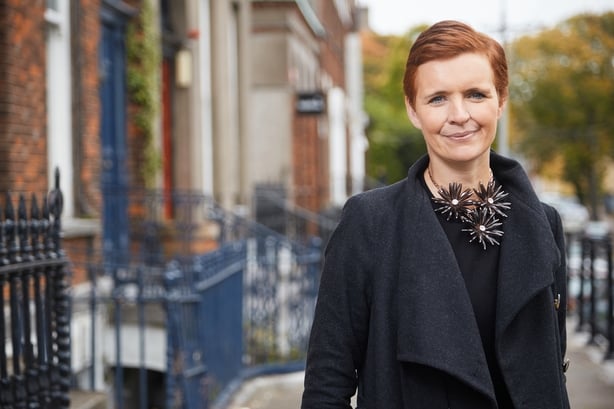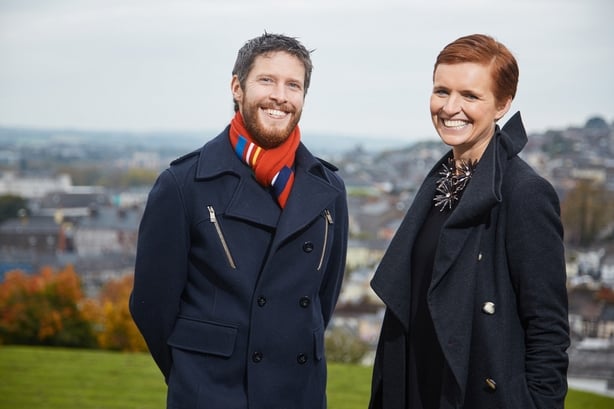Dr. Pixie McKenna gives her medical opinion on if and when we should be Googling, when we need to see a professional and the food mistakes we're all making.
People are constantly Googling their symptoms in an effort to self-diagnose. Why do people do it and why do you think it’s so damaging?
I don't actually think it's damaging, I think that we do it because now we live our lives in an entirely different way than we would have ten years ago. Anything you want to look up; whether it's to go on holidays, go for a pint, get a new pair of shoes, the first port of call for the majority of this generation is the internet.
It's difficult to access doctors, you can't access them 24/7, you can't pick up the phone and speak to your GP whenever you want to and so it's the first port of call. It's kind of just how society has gone really!
Are there any reputable sites that you could recommend if people are intent on searching their illnesses?
I think any site that is affiliated with a health service so if you look at things like any of the HSE affiliated sites, in the UK it would be the NHS ones, and then the bigger organisations like the Mayo clinic. Anything that is attached to a university is also good and there a lot of really good information portals surrounding things like pain relief.
There are more safe places to go on the internet for medical advice than there are unsafe places. The problem is that the information isn't selective. It doesn't know that you are Pixie McKenna with a family history of nasal polyps and that you're allergic to aspirin. It can't touch you, it can't feel you, it can't smell you, it can't see you and one of the things as a GP that is hammered into you is the non-verbal cues for diagnosis.
The stuff that the patient doesn't tell you, the stuff that you just pick up by looking at them or looking how they are, that is as important as an examination in terms of making diagnosis. I'm not anti-internet though, I think we have to accept that we live in a society where, more and more, we are going to be accessing health information online, we're going to be putting our own health information online and we are going to be self-diagnosing and self-testing.
What are the most common problems you see in Ireland? Are there any common sense health things we can do to prevent it?
For me, one of the big things in the winter time is vitamin D. We've had a reasonable amount of vitamin D over the summer but once the clock goes back our exposure to light reduces significantly, particularly bright light that will give us enough vitamin D to get us through the winter.
You can get vitamin D from your diet from things like sardines but you will only ever get probably 10% of your requirement from what you eat. The rest you will either have to source from the sun, which we don't get a huge amount of in Ireland, or supplements.
I would say one good thing to do for the winter to keep yourself healthy is take a vitamin D supplement. Take it now and stop once the clocks go forward; it will see you through the winter, it will make you less miserable, it will give you more energy and it will probably make you less likely to pick up those winter germs.

Childhood obesity is becoming a huge problem in Ireland, what can you recommend to children and their parents?
Being very blunt - if you're a fat parent, you're more likely to have fat children. If there's one incentive when you look at yourself in the mirror and you've got kids, then you've got to realise that statistically you are not only putting yourself in danger, that you're going to die prematurely because you're obese, but you're also putting your kids in danger.
I think that finding an exercise, finding some kind of outlet that all the family can do is really important, you don't have to join a gym or buy fancy trainers or anything like that. There's so much you can do without spending a huge amount of money and everybody has the time, I don't think that's an excuse.
What are your top tips for keeping fit with a busy lifestyle?
If you do a few star jumps on the ad break for You Should Really See a Doctor, do something small and stop driving everywhere. Irish people are mad for driving everywhere! I love in Cambridge and you can't drive anywhere because the traffic is so bad so everybody cycles. I cycle or walk everywhere, the thought of getting into a car and sitting in traffic just to go to the shop... It really strikes me at home that everyone will drive down the road. Why don't you walk? It's simple simple things.
Snacking as well for kids, a snack doesn't have to be unhealthy, it can be do something good, something nice that isn't full of salt and fat and sugar and calories but can still be healthy.
Any food rules to live by?
Eat three meals a day, don't snack and always have your breakfast. It is scientifically proven if you don't eat breakfast, we are hard wired, because we go into starvation mode, to eat something that is energy dense as soon as food is put before us. So if you don't have your breakfast by 10 or 11 o'clock, you will seek out something that is very high in calories.
Buy some small plates, don't buy those massive ones that don't even fit in your dish washer! Use a kids knife and fork because you'll eat smaller portions. Don't have seconds, and drink your fluids. A lot of misinterpret thirst for hunger. Drink water, don't drink fizzy drinks.
With alcohol, if you are going to go out and have a party on a Saturday night, remember the glasses of wine or pints are stuffed with calories.
Chewing your food is important, a lot of us just hoover down food, the focus should be not only on what you eat but how you eat. Both of those priorities are very important and you will know yourself, we all do it, how you eat when you're on your own is entirely different to how you eat when you're in company.
Only eat when you're sitting at the table, no going into the garage to eat something to eat in the car or getting something in the supermarket or getting something on the train - ban all of that.

What do you hope the show will do in terms of improving the nation’s health?
Doing shows like this and Embarrassing Bodies, what we realised is that people are sitting down watching the telly and it's entertainment, I guess its factual entertainment, but they are definitely learning things and if something they see doesn't necessarily relate to them, they'll pick up something that might relate to them in the future or may relate to a friend of family member. It's getting health information by osmosis really.
It's good to encourage people, I think if you see someone who's had a problem for a long time but has been dodging the doctor and they finally have the courage or opportunity to see someone, and they have a resolution, then that's important.
People don't realise that they can have a particular condition and while it affects them it can also effect all the family or the people they work with or their partner. Your ailment or your illness isn't just about you, I can also impact other people and it impacts what you can do and what you contribute to society and how you interact with other people. It's important to think of the bigger picture.
I am very anti to the thing that I hear a lot which is "I didn't want to bother the doctor", doctors are there to be bothered, bother us. We can let you know pretty quickly whether its something you don't need to worry about but less us make that call rather than sitting at home suffering in silence.
What’s the hardest part of the job? Any stories stick in your mind?
We went to Kilkenny, Bundoran, back to Cork, Kerry, Dublin, Waterford. We got lots of, as always is the case, lots of skin problems, neurological problems, there were some migraines, someone with possible absence seizures, someone who thought they had multiple sclerosis. Some interesting ones and then one lady in particular that I saw in Kilkenny, who had a skin condition on her legs and I had absolutely no clue what was wrong with her. Again, i'm a human being, not an encyclopedia and doctors don't know the answer to everything sometimes they have to go up a grid and send you to someone else!
These people come into the clinic for a short period of time but then they have to go back out and live their lives day to day with some awful things, they mightn't be life threatening, but they are really, really life impacting. I think we've managed to made a difference in the majority of cases which is good and the public will hopefully pick some things up and get an education on conditions. If we all knew a little but more about our bodies and how they can let us down, I think we'd be a much more inclusive society.
Were there any stories that really stuck out for you making this series?
I think it would have to be Kevin with dystonia so Kevin was a really fit and healthy chap up until just over a year ago and he started to develop this weird spasm in his shoulder area right up into his neck. If you can imagine having a really bad crick in you neck but its going right down your back and its happened for no apparent reason.
He's gone from someone who was in full time work, never saw the doctor to someone who suddenly can't do anything. It's puzzled a lot of the neurologists and he's trialing some therapies. He's so upbeat and so keen to get an answer, not just for him but for his family so he can be back to normal. He's got that great attitude that's helping him get something that is massively distressing.


